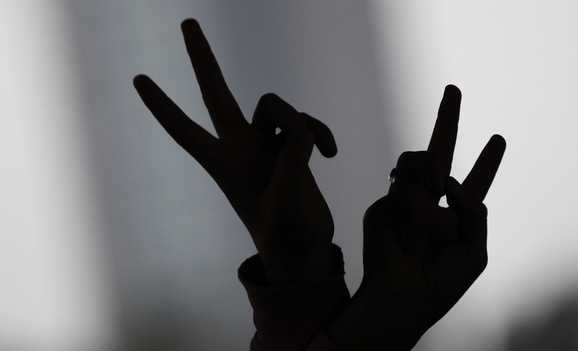The Uighur attack in the northwest was shocking but not a precursor to a bigger outrage
The Olympics will open on Friday inside a triple ring of steel. Anti-terrorism precautions have been an unavoidable feature of the Games since the PLO massacre of Israeli athletes at Munich in 1972, but China has taken things to extremes.
It has mobilised 110,000 police and other security forces in Beijing itself, plus 1.4 million security “volunteers” with Red Guard-style armbands and no fewer than 300,000 spy cameras. The security bill for Beijing alone exceeds £3 billion. Outside the capital, cities hosting Olympic events will be patrolled by 34,000 troops, surface-to-air missiles guard key sites, and 74 military aircraft, 48 helicopters and 33 naval vessels have been placed on high alert. While insisting that none of this will dampen the “festive atmosphere”, the Chinese official in charge dourly insists that “safety is the main symbol for success of the Games”.
Not a rat will scurry Chinese streets undetected – and that, charge those few dissidents who have not already been arrested or shipped out of town, is the real purpose. The Communist Party is obsessed, they say, not by terrorists, but by fear that demonstrations by law-abiding citizens will mar the image of China’s “harmonious society”. “One world, one dream” is the slogan, and woe betide anyone whose dreams deviate from the party line. Far from redeeming its pledge that to be awarded the Olympics would improve respect for human rights, China has seized the excuse for a crackdown. By po-facedly lumping together as “terrorist threats” not just separatist movements in Tibet and Xinjiang, but the nonviolent though eccentric “Falun Gong evil cult” and “common citizens who are discontented”, Chinese officialdom reinforced the cynics’ case.
It would carry cynicism too far to say that this week’s brutal attack, almost certainly by Uighur militants, on a border police garrison in the far northwestern frontier city of Kashgar was nicely timed to still such criticism. Killing 16 police, it has badly shaken the nation and compels fresh examination of China’s assertion that it has a serious terrorist problem in the predominantly Muslim Xinjiang Uighur Autonomous Region, and that Uighur separatists have the Olympics in their sights. The attack is also a big embarrassment, given the massive security clampdown that China has mounted in recent months across this, its largest province.
But it does not, however shocking, prove Beijing’s point. The fact that this was the deadliest terrorist incident on Chinese soil for a decade and that the attackers were arrested indicates, to the contrary, that violence in Xinjiang is ill-organised. Nor does it prove, contrary to Chinese assertions since 9/11, that the Uighurs are a fount of Islamist terrorism, inspired by if not linked to al-Qaeda. The truer analogy is between Xinjiang and Tibet.
Both these vast terrains are officially classed as “autonomous regions”. To walk the streets of Kashgar or Khotan, the scene of demonstrations earlier this year, is to sense immediately how much more they have in common with Kabul than with China proper. In both, that autonomy is mocked by heavy-handed Han Chinese domination of government and economic life: not for nothing does Xinjiang, only sporadically under Chinese control until it was conquered by the Qing dynasty in the 16th century, mean “New Dominion”.
The Uighurs have been at odds with the Chinese for centuries. Like the Tibetans, they fear becoming a minority in their own land, where officially encouraged Chinese migration under the slogan “Go West”, accelerating over the past decade with the aggressive development of Xinjiang’s rich oil and mineral resources, has lifted the Han Chinese from 5 per cent to 40 per cent of the population. Like the Tibetans, the 8.5 million Uighurs of Xinjiang are treated as second-class citizens; a US congressional committee records that in 2006, the Xinjiang Communist Party reserved 800 out of 840 Civil Service job openings for Han Chinese – using the excuse that “the cultural level of the people here is quite low”. Their mosques are closed or razed at will; their traditional homes are being demolished in the name of modernisation; and they fear, with some reason, that their language and culture are being reduced to the level of tourist attractions.
A decade ago these discontents spasmodically erupted in attacks by separatists, chief among them the East Turkestan Islamic Movement (ETIM). A few Uighurs did train with al-Qaeda – 22 ended up in Guantanamo. But their purchase in Xinjiang was marginal even then, and the Chinese security presence has, by most expert reckoning, reduced ETIM to fewer than 100 fighters. The Uighurs are a disgruntled lot, but they are not by and large Islamists and they are realistic enough to recognise independence as a pipedream.
China does not have a terrorist problem, in Xinjiang or anywhere else. It might not even have a nationalist problem in Xinjiang if it gave Uighurs a fairer deal. Beijing needs to wake up, smell the kebabs, and acknowledge the Uighurs’ right to be themselves. The threat to the Olympics is minimal.


Leave a Reply